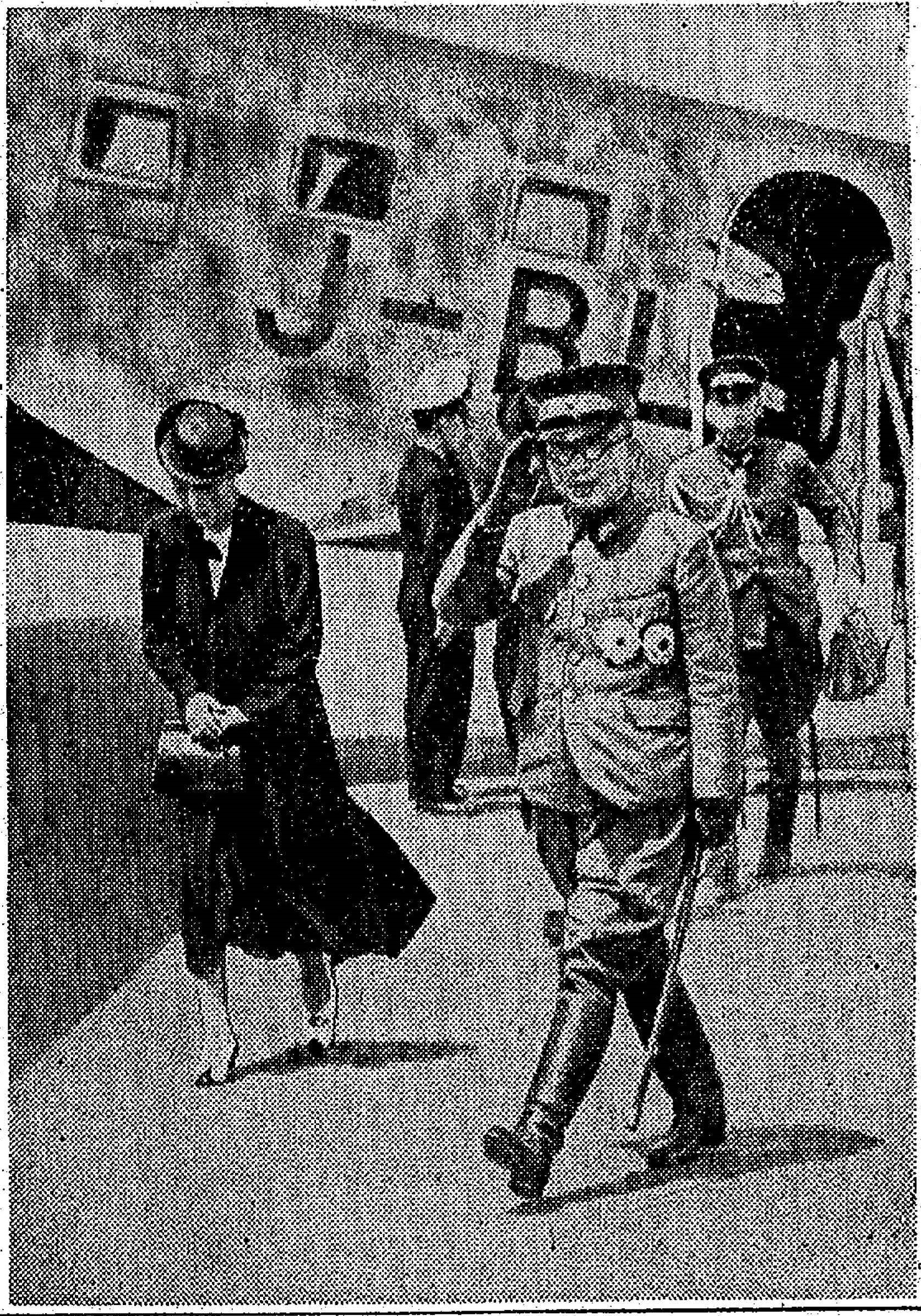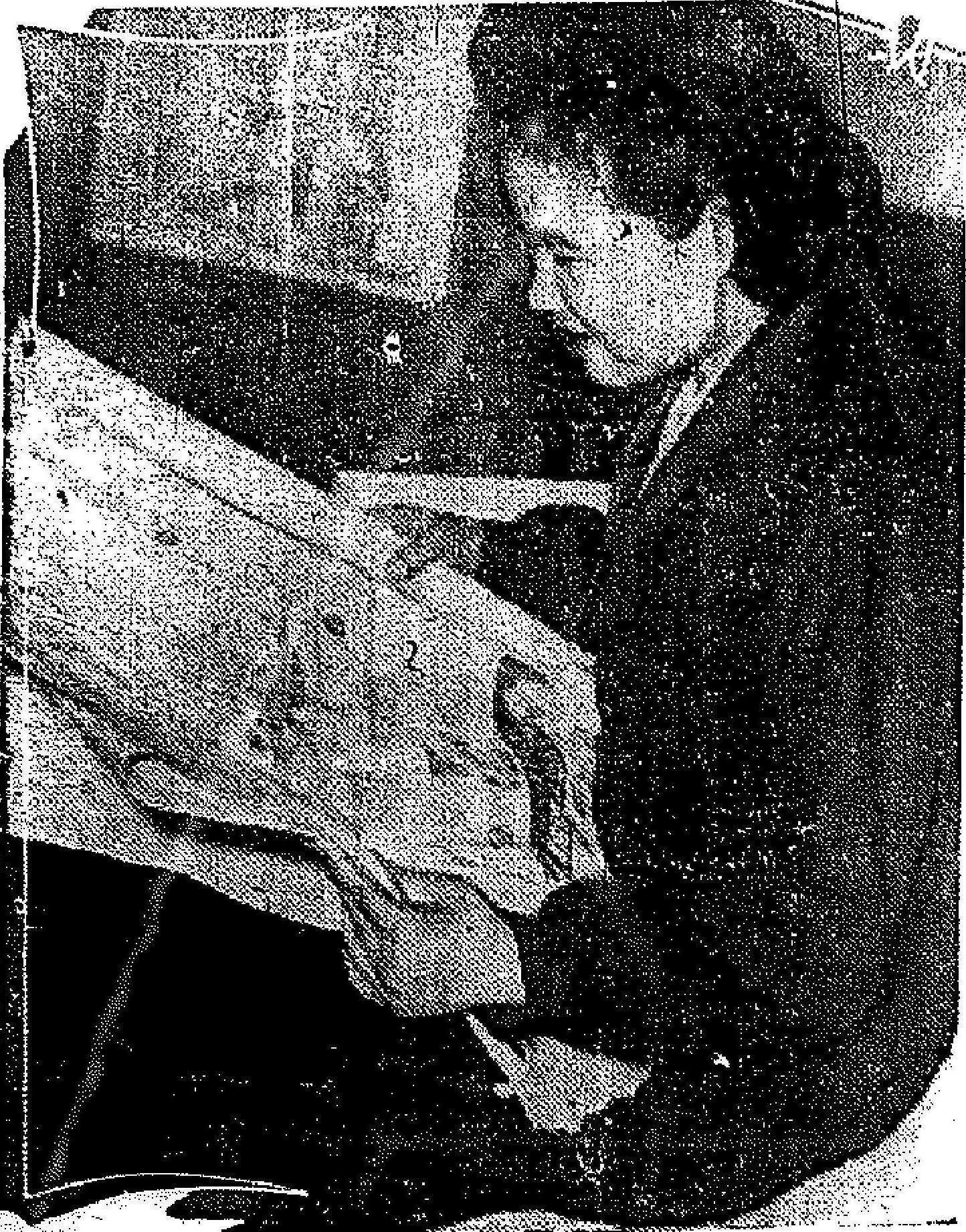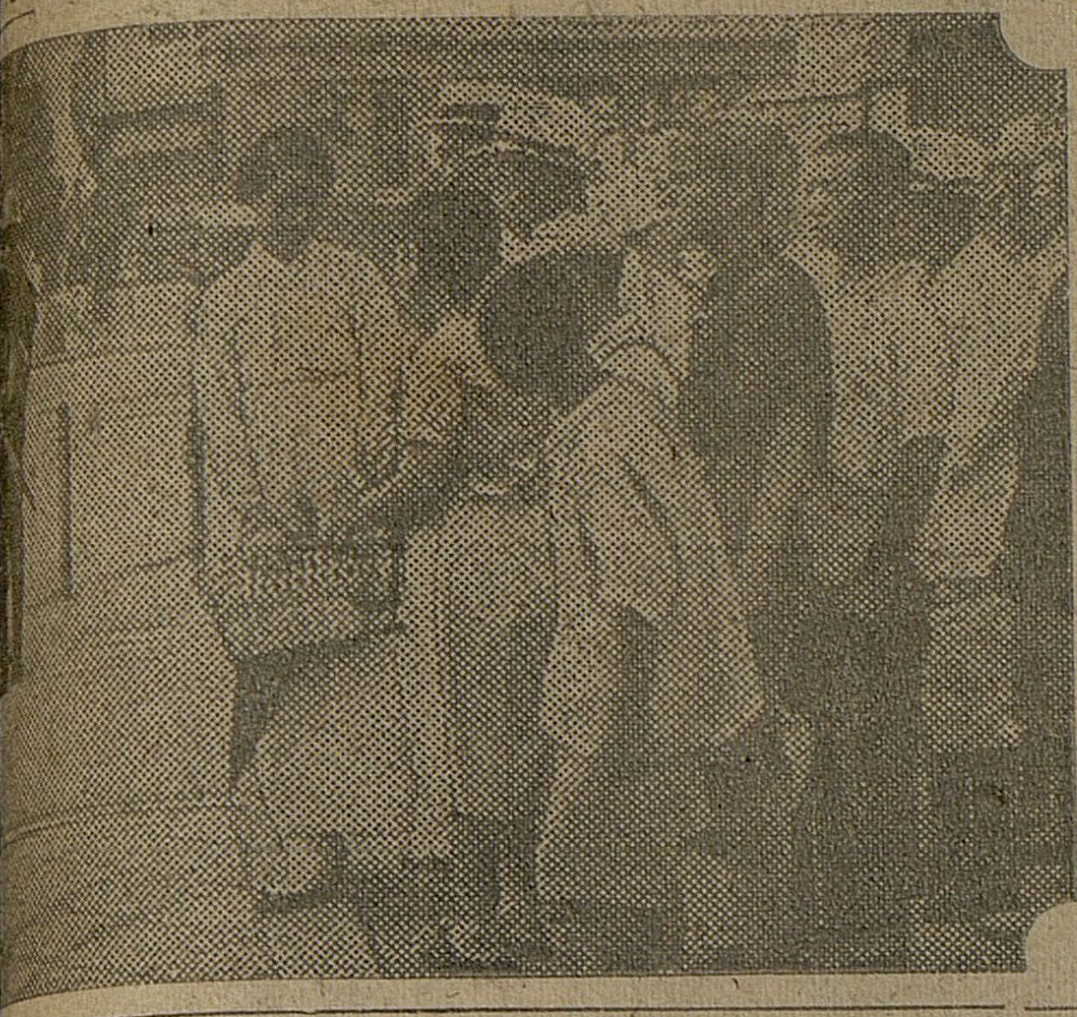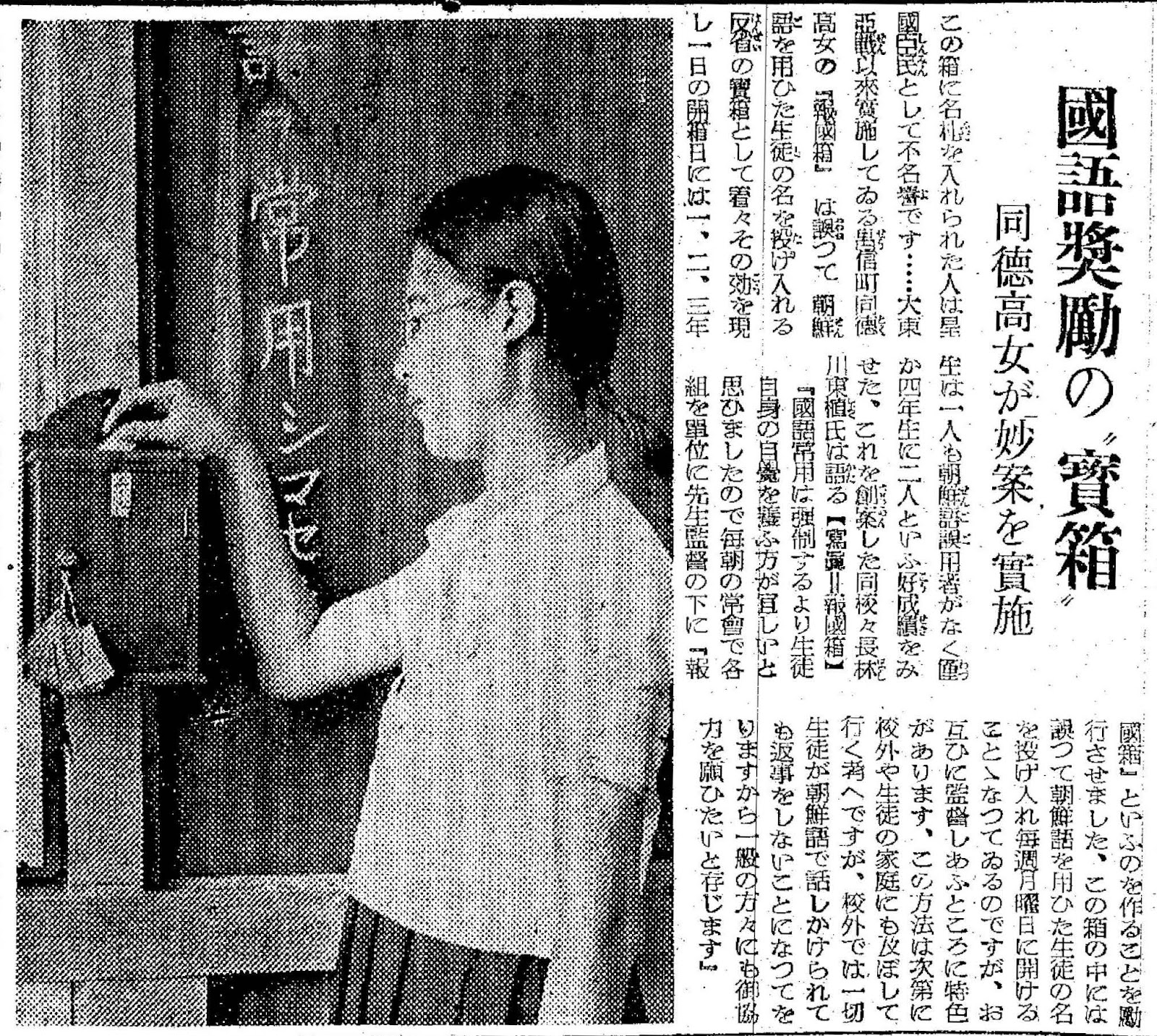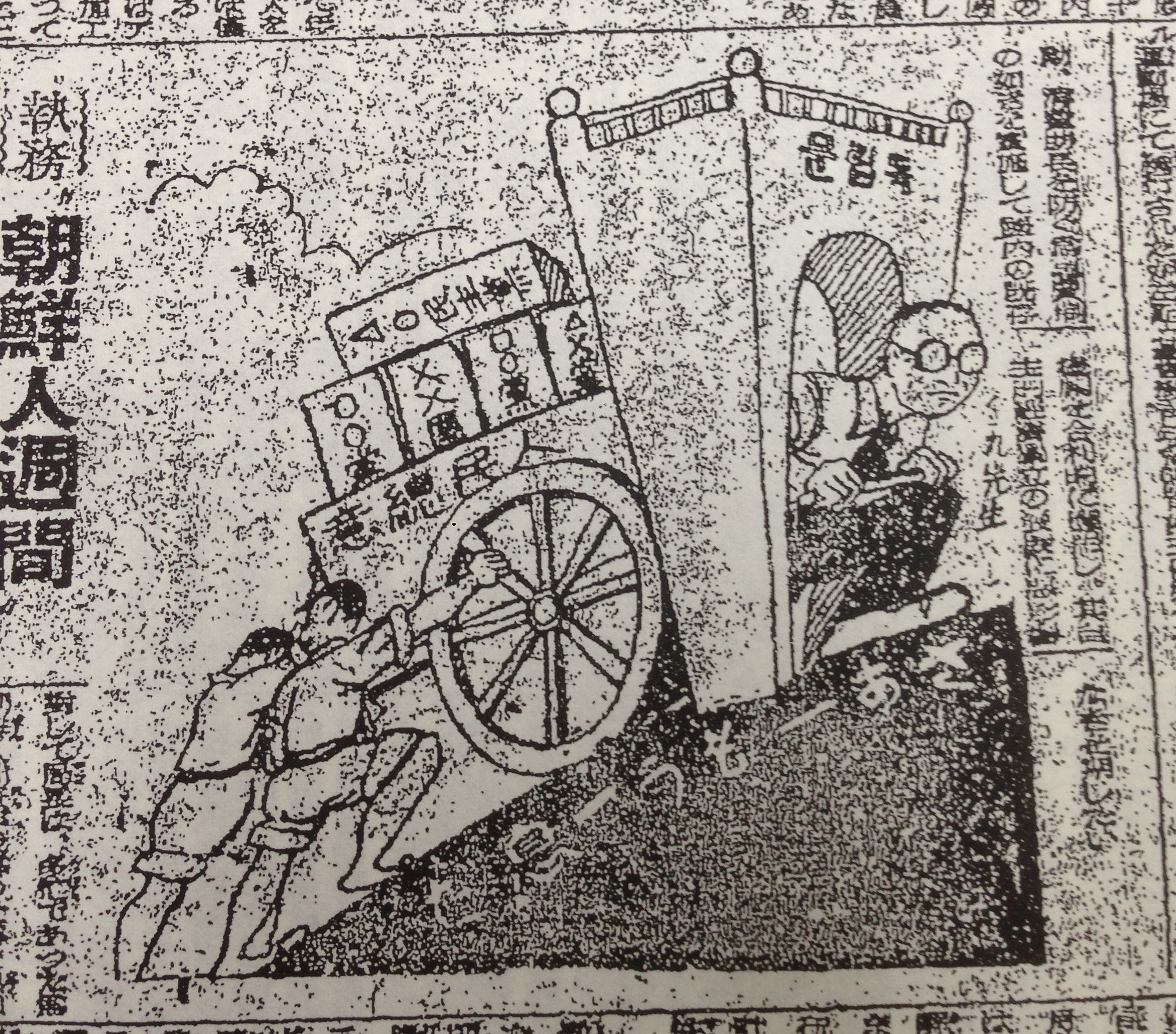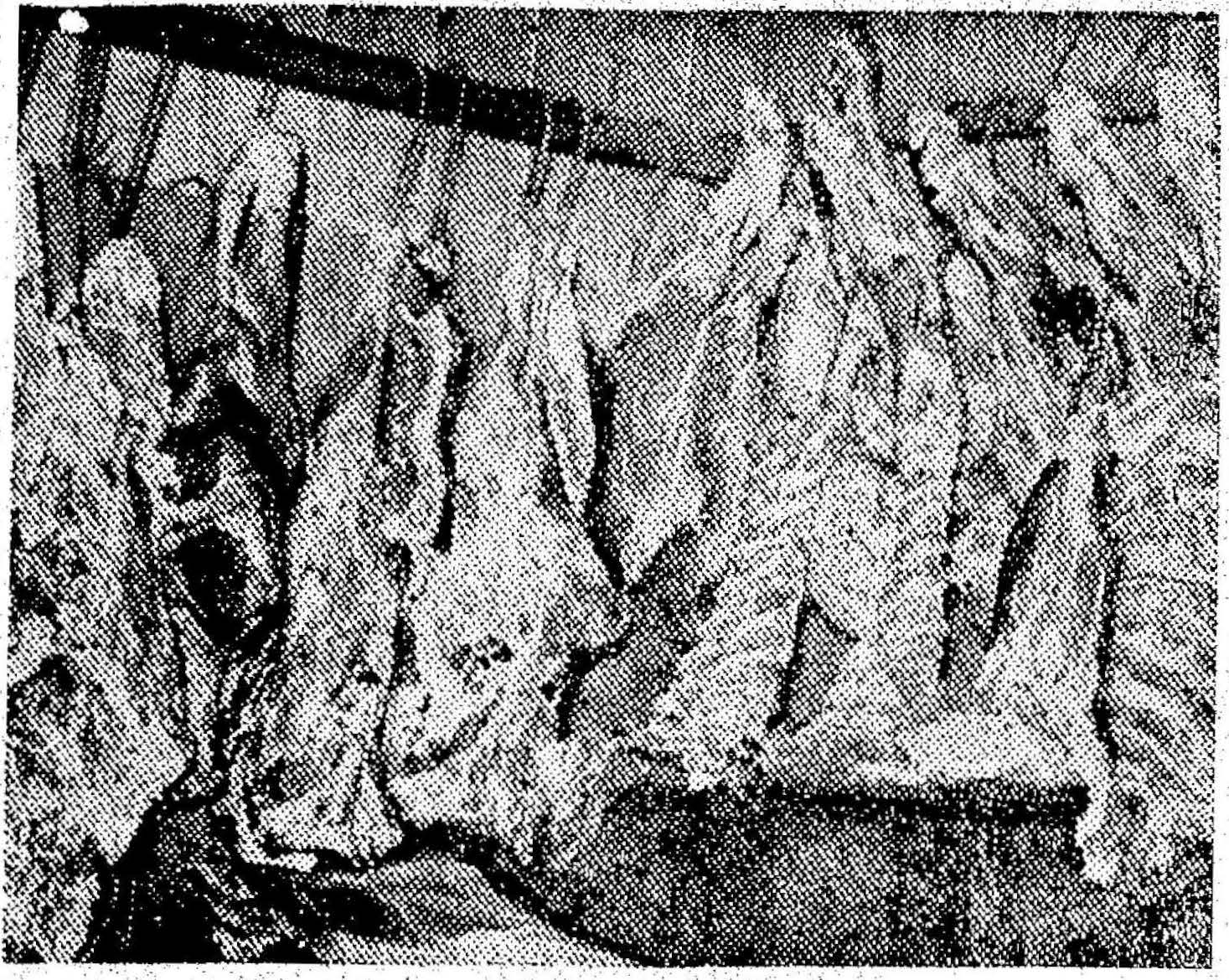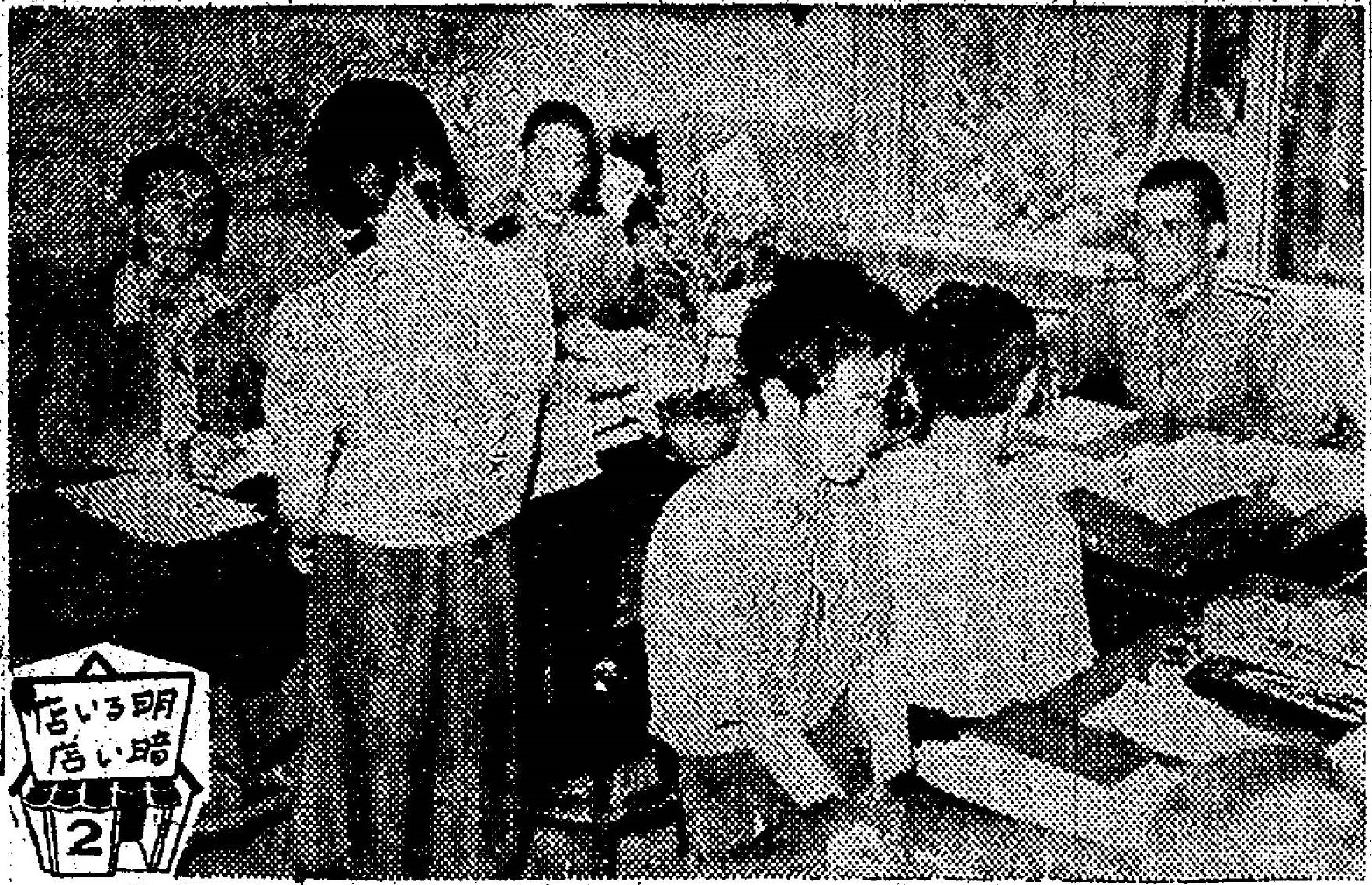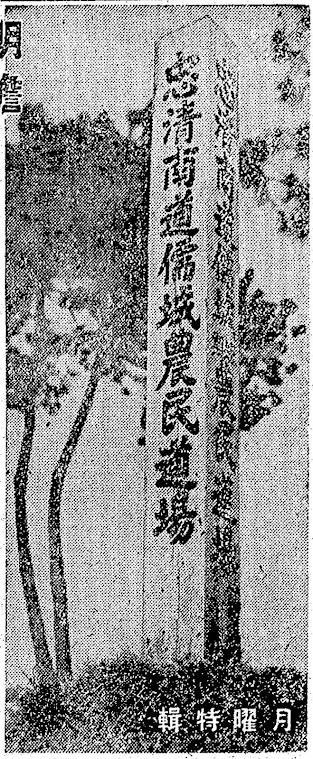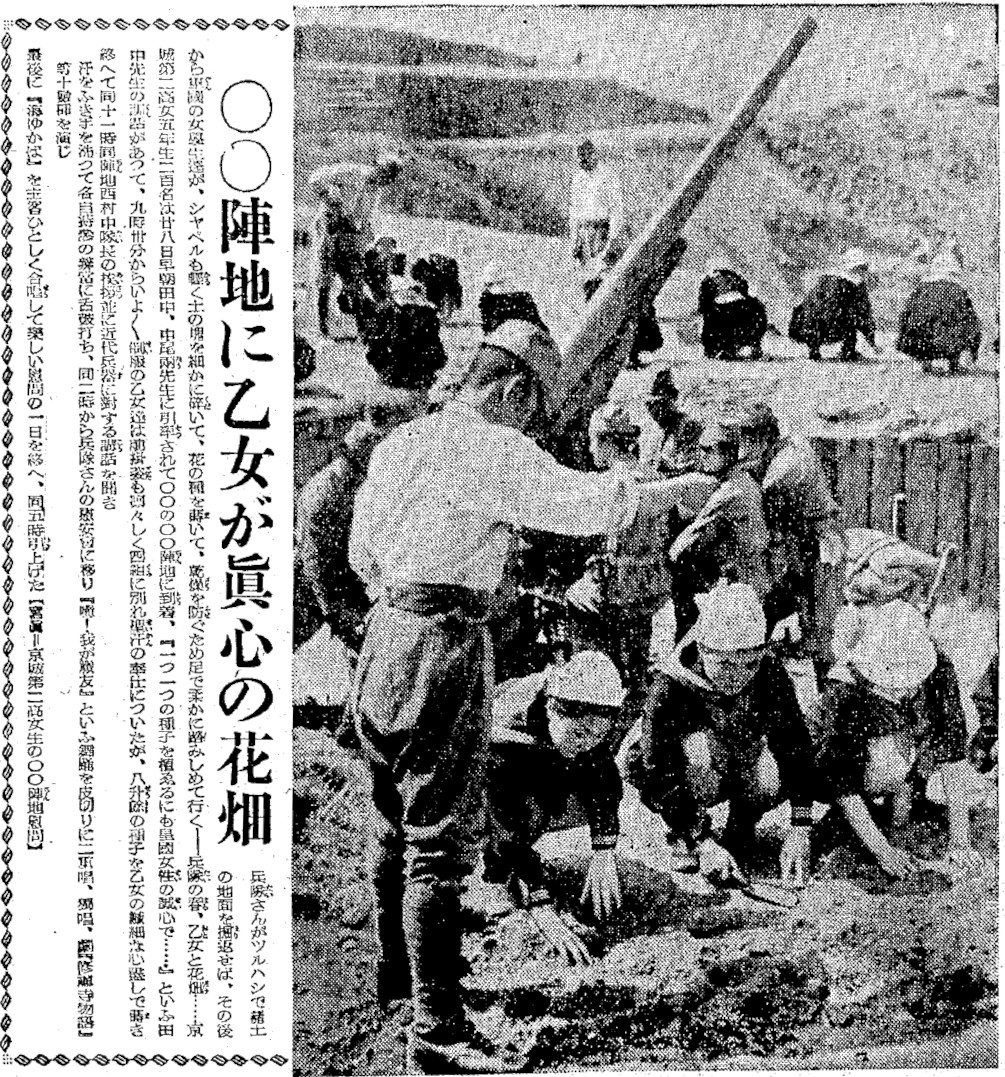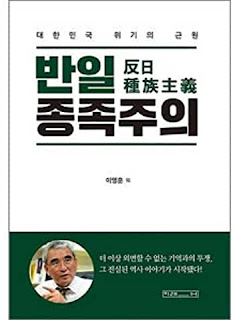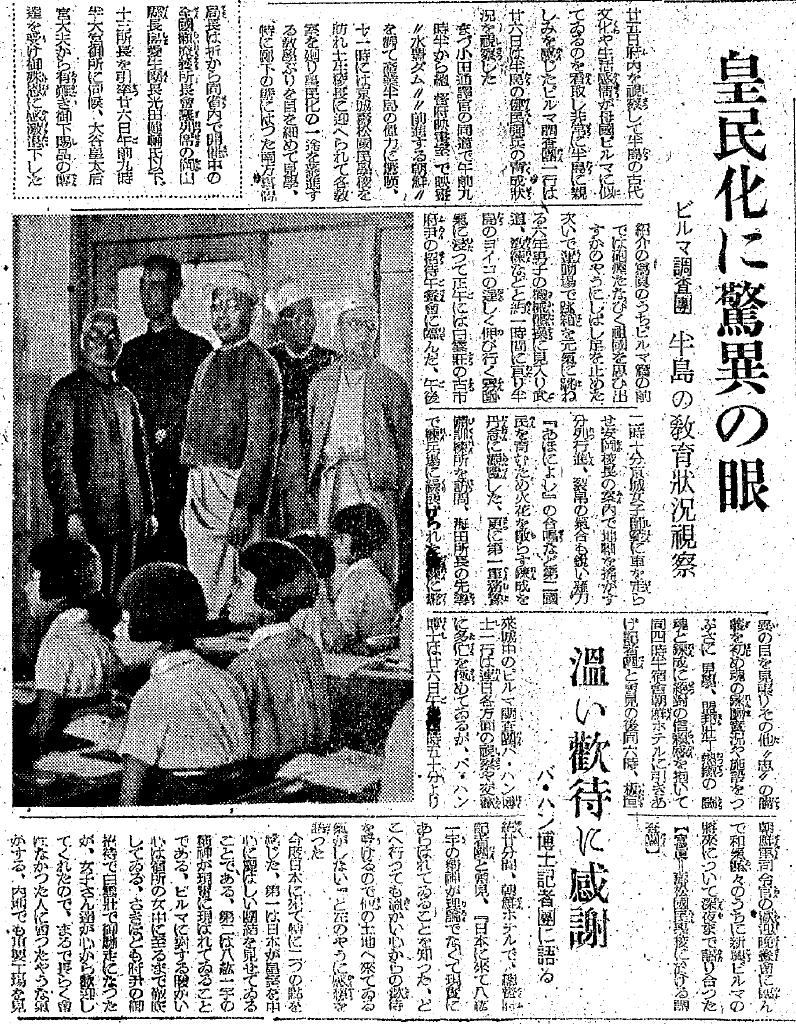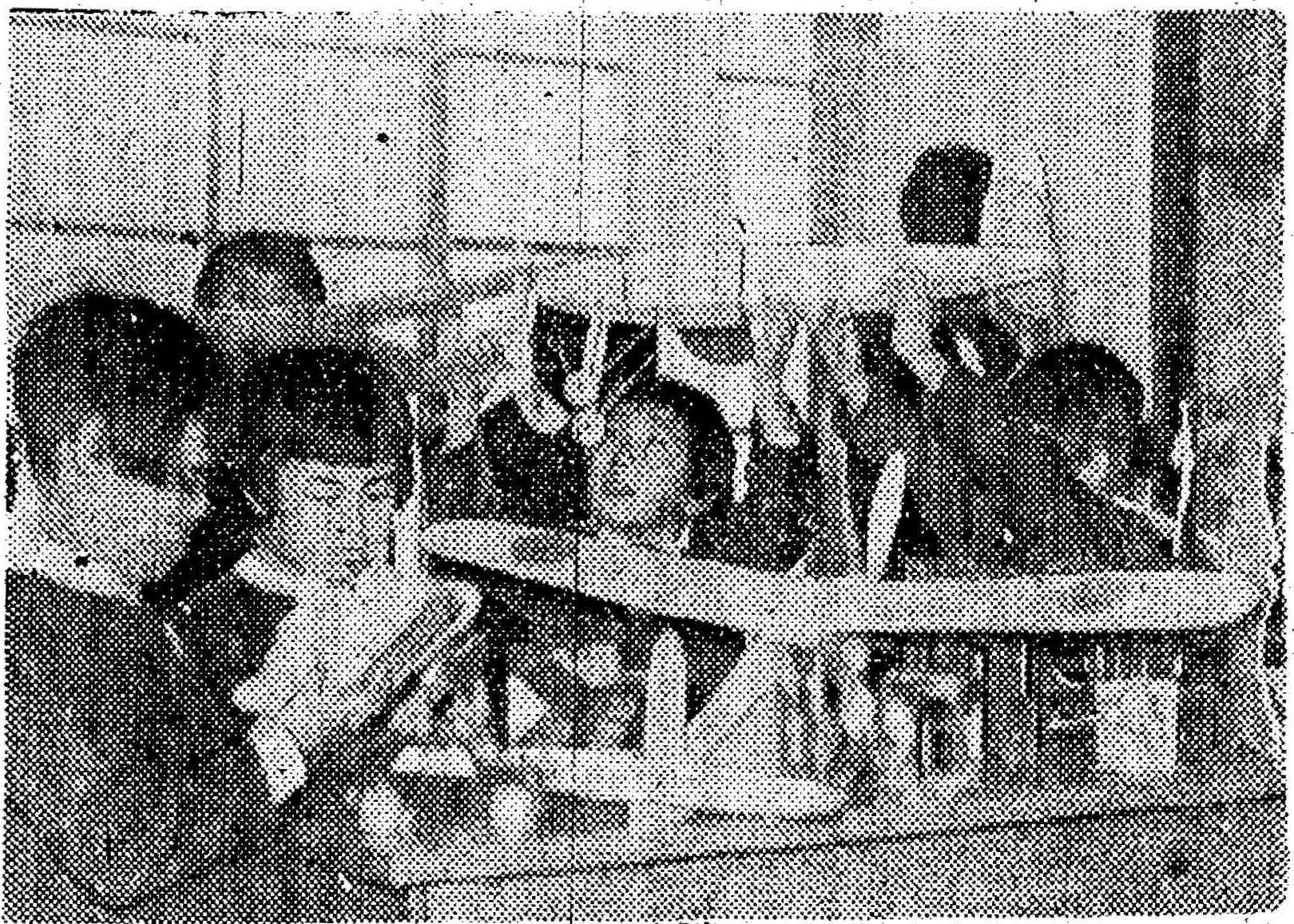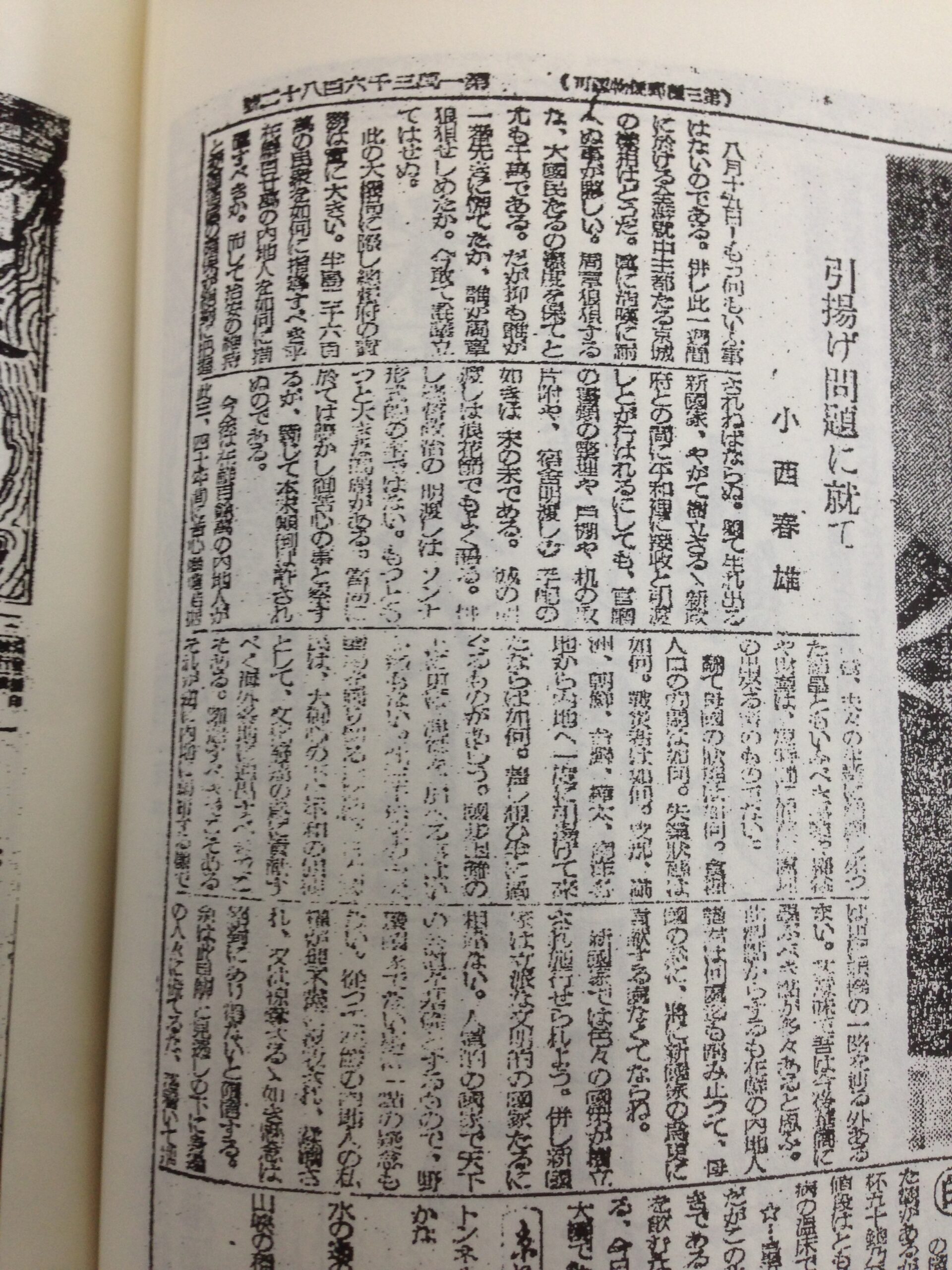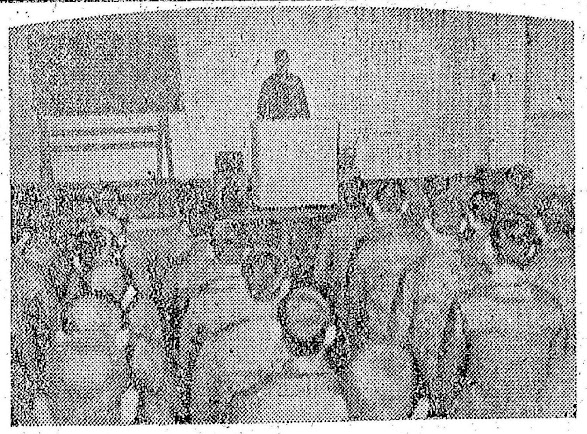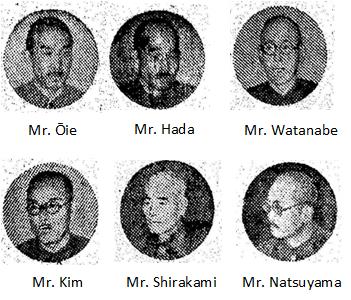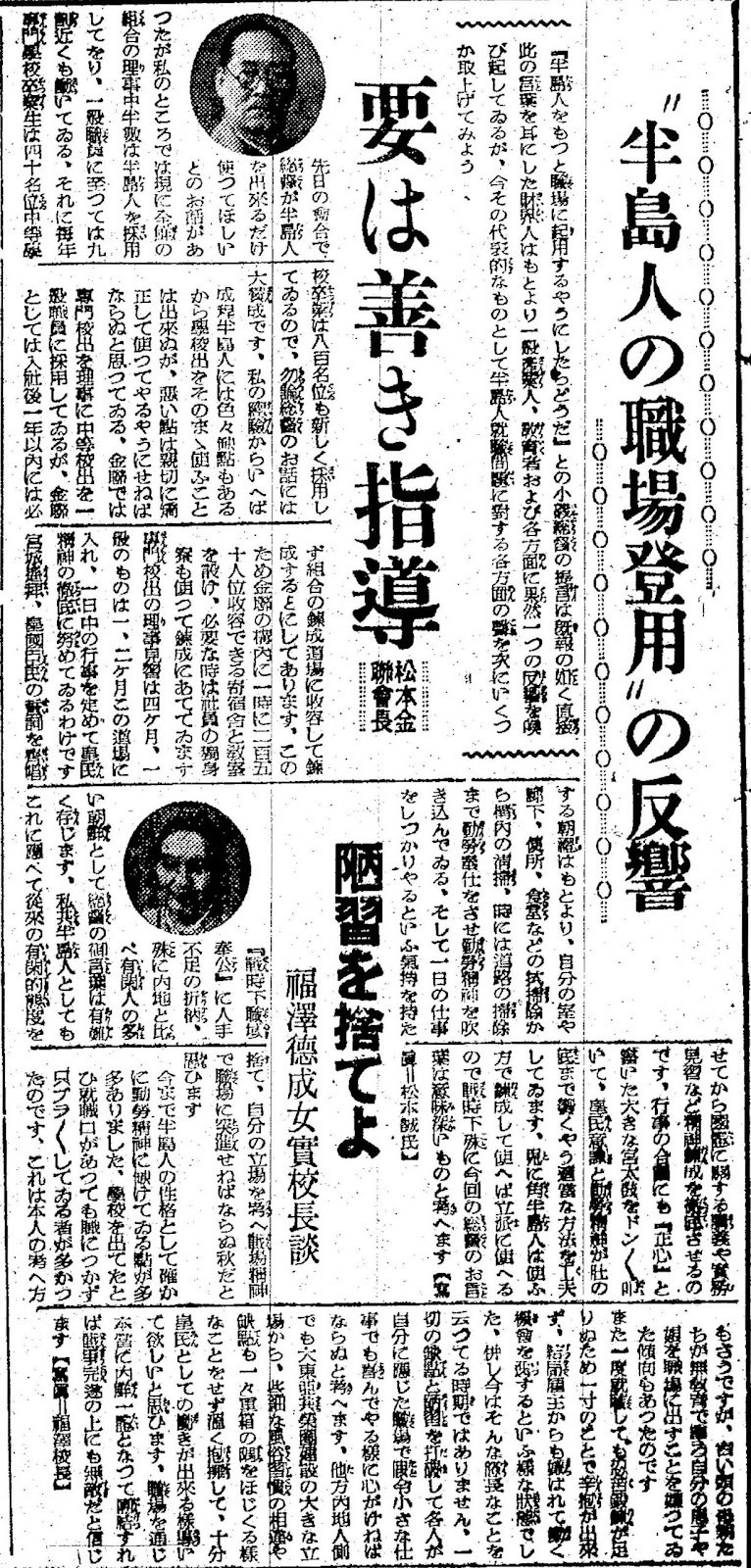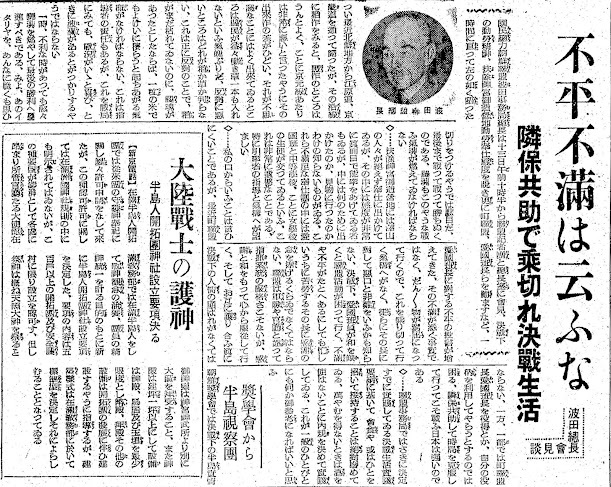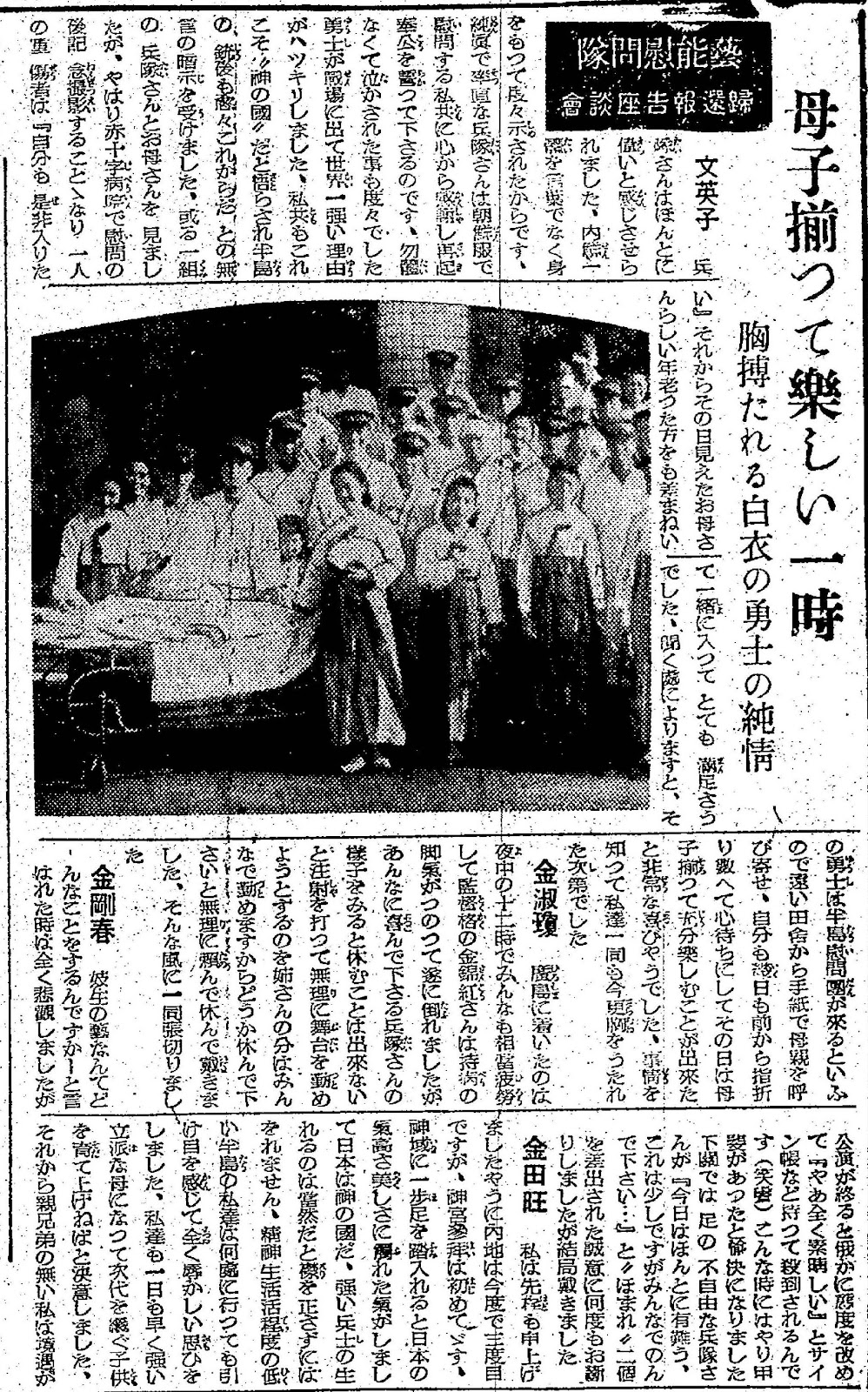
Korean comfort women interviewed after whirlwind 1943 Japan tour visiting wounded Imperial Japanese soldiers who ‘showed us again and again with their bodies, not with their words, that Japan and Korea were to be unified as one’ and ‘we were often moved to tears because we did not feel worthy’
Notes: This article contains an interview with the Korean comfort women who were part of a ‘comfort team’ which went on a whirlwind tour of Japan in 1943 visiting Imperial Japanese soldiers throughout the country. I highly recommend reading the related ‘wipe out the Korean language’ editorial, which I posted last month. This notorious editorial essentially says, to paraphrase, “These comfort women were not the brightest or the best educated, but look at how well they learned Japanese once they served Imperial Japanese soldiers! We should expand this out to all of Korea, so Korean women can learn Japanese faster.”
This is the horrific truth that almost no one mentions about Korean comfort women for some reason – their sexual exploitation was just a trial run as part of a much larger plan to wipe out the Korean language and ethnic identity and thoroughly instill the Japanese language and culture in all of Korea. The network of concentration camps for the young Korean girls was also going to be greatly expanded. The model of linguistic and cultural assimilation carried out in Korea was to be eventually replicated in all other territories occupied by the Imperial Japanese military. The only thing that prevented this grand plan from being carried out in its entirety was defeat in World War II.
There is an editorial which I posted under the title, Editorial says the unity of god and man realized by the Japanese Imperial Way cannot be found anywhere else in the world, so Imperial Japan must ‘turn the world into a single realm, let all nations take their places, and let all people rest in peace’ starting with the colonization of Korea. It essentially says that the model of governance developed in Korea will be exported to all parts of the world that are occupied by the Imperial Japanese military. I won’t link it here, because it contains some hateful language that led to me being banned from the r/badphilosophy subreddit, despite previously posting other Imperial Japanese editorials without any problems – apparently the content was so disturbing and distressing that the mods decided to ban me. If you still want to read it, you can find it on this blog by going to the ‘philosophy’ label.
This article refers to Kisaeng, or Korean female entertainers who sing, dance, play musical instruments and write poems to entertain upper-class men. In earlier times, their work did not necessarily always involve sexual service, but during Japanese colonial rule of Korea, they were more closely associated with sex work. By the 1940s, the vast majority were involved in prostitution. One prominent former Korean comfort woman, Kim Hak-soon, went to a Kisaeng school before her abusive father took her to China to find her a job. That was where she was detained by Imperial Japanese authorities and then forced to work as a comfort woman for the Imperial Japanese military.
This article is also significant in that Imperial Japan proudly and shamelessly publicized the fact that its soldiers were seeing comfort women. In fact, it celebrates the encounters between the Imperial Japanese soldiers and the comfort women as happy encounters. To an outsider who knows about the war crimes and atrocities committed by the Imperial Japanese military, it may sound patently absurd and delusional, but sadly enough, there are still Japanese people in prominent positions of power in the Japanese government, businesses, and universities who still believe this unbelievable propaganda. I have described this intractable problem in a long essay here.
This article mentions the daily 7 am and 12 noon prayers that all Koreans in the Korean peninsula had to participate in. There were usually loud sirens marking those two times of the day, and you had to immediately stop what you were doing and perform the prayers. The 7 am Kyūjō Yōhai ritual (宮城遥拝) involved bowing several times in the direction of the Imperial Palace in Tokyo while standing, almost reminiscent of the Muslim salah prayer in the qibla direction of Mecca. The noon prayer was a moment of silence in honor of the Imperial Japanese soldiers.
(Translation)
Gyeongseong Ilbo (Keijō Nippō), August 15, 1943
Mother and son have a good time together
Heart-struck by the pure innocence of the heroes in white
A round-table discussion on the return of the performing arts comfort team
Moon Young-ja (문영자/文英子): “We were made to feel that the soldiers were really great men. The reason for this is that they showed us again and again with their bodies, not with their words, that Japan and Korea were to be unified as one. The pure and frank soldiers thanked us from the bottom of their hearts when we comforted them in Korean clothes, and they vowed to serve us again. We were often moved to tears because we did not feel worthy. It became clear to us why our heroes are the strongest in the world on the battlefield.
We, too, were made to realize that this was a ‘divine country’, and we were given a silent reminder that, soon, the Korean peninsula was also going to do its part on the home front. We saw a group of soldiers and their mothers at the Red Cross Hospital, where they were to be photographed after the comfort visit. One seriously wounded man said, ‘I really want to join in,’ and he invited an elderly woman who looked like his mother to go join him in the photo shoot, and they looked very satisfied. According to what we heard, the brave warrior had written to his mother from the distant countryside to invite her to come to the event, and he had been looking forward to it for several days, counting down the days with his fingers. Knowing what had happened, we were all touched by the news.”
Kim Sook-gyeong (김숙경/金淑瓊): “It was twelve o’clock at night when we arrived in Hiroshima, and everyone was very tired. Our manager, Kim Geum-hong (김금홍/金錦紅), collapsed due to her chronic beriberi disease. However, she insisted on carrying on and forcing herself to perform by giving herself an injection, saying that she couldn’t take a break seeing just how happy the soldiers were. But we implored her to take a break, since we could all work together to compensate for her absence, and she relented and took a break. That was how we all felt.”
Kim Gang-chun (김강춘/金剛春): “I was completely pessimistic when I was asked what kinds of performances a kisaeng does, but once the performance was over, my attitude suddenly changed as I was inundated with soldiers holding autograph books (laughter). At times like these, I became happy and felt that it was worth it. In Shimonoseki, a soldier with a limp said, ‘Thank you so much for today, please drink a little of this…’ and offered us two bottles of Homare Sake. We tried refusing this sincere gift several times, but eventually we accepted it.”
Kim Jeon-wang (김전왕/金田旺): “As I mentioned earlier, this was my third time in Japan proper, but it was my first time visiting a Shinto shrine. When I stepped into the shrine, I felt that I was touched by the nobility and beauty of Japan. I couldn’t help but think that Japan is a divine country and that it is natural for strong soldiers to be born there, so we were compelled to adopt a more serious attitude. We Koreans, who have a low level of spiritual life, felt inadequate and ashamed of ourselves everywhere we went. We were determined to become strong and respectable mothers as soon as possible and raise our children to succeed us in the next generation. I have no parents or siblings, and if circumstances allow, I would like to become a volunteer battlefield nurse in the future.”
Kim Wol (김월/金月): “When I came to Japan proper, I noticed something strange. In Korea, we pray at 7:00 a.m. bowing to the Emperor’s palace in the Kyūjō Yōhai ritual, and at noon, we hold a silent prayer for the Imperial Japanese troops, but this is not the case in Japan proper. I wondered why. However, I gradually came to understand the reason. There are shrines all over Japan, and people worship at them with reverence in the morning and evening. You can even see them from the windows of the train.
This is why the people of Japan proper know that the gods are always with them, and they don’t have to worship at set times like in Korea. I felt that we Koreans need to move forward to the point where we are always living with the gods in our daily lives.”
Ahn Chun-il (안춘일/安春一): “When we went to a hospital in Japan proper, we saw women who were not nurses washing the soiled clothes of the soldiers. Asking around, we learned that there was a variety of women’s groups performing labor service. We also began to feel like going to some hospital and helping out.”
Keijō Nippō Reporter: “I see. I’m sure you’ve made yourselves mentally prepared as Korean women in a variety of ways.”
Kim Geum-hong (김금홍/金錦紅): “I am amazed at how gentle and kind the local women are in Japan proper. This is something that I think Korean women should learn from. Unlike Korean women, the upper-class women in Japan are not pretentious, but are kind and sincere, and I enjoyed spending time with them wherever I went. Mrs. Takamiya, the wife of the president of the company who rode with us on the train to Yokosuka, paid special care to look after the luggage of people like us. We completely bow our heads in gratitude for all the help that we have been given. The kindness was so sincere, and we were so engrossed in our conversations on the train on our way home, that we even rode all the way to Tokyo Station, missing our stop (laughter). Even though Korean women are sometimes very stiff and formal, I think we need to train ourselves to be a little kinder to each other.
At any rate, in Tokyo and everywhere else in Japan proper, on the electric trains and on steam locomotives, we were very sorry to see so many brave men with the wounded soldier insignia on their chests. Fortunately, a conscription system has been established in Korea, and I believe that now is the time for Korean men and women of all ages to really rise up this autumn as Imperial people.”
Keijō Nippō Reporter: “Thank you very much for spending so much time with us.”
Photo: The team comforting the seriously wounded soldiers in white clothes at the First Army Hospital.
Source: https://www.archive.org/details/kjnp-1943-08-15

